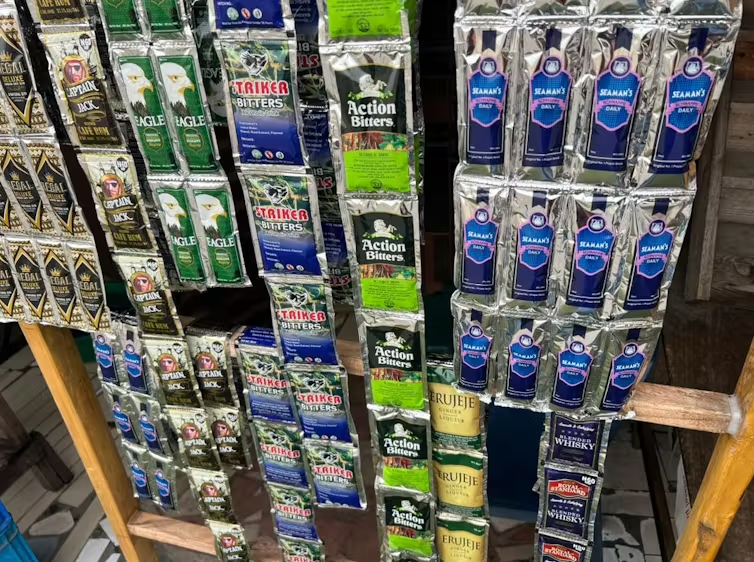The Senate of the Federal Republic of Nigeria has directed the National Agency for Food and Drug Administration and Control (NAFDAC) to fully enforce the ban on the production and sale of sachet alcoholic beverages and small PET bottle alcohol (below 200ml) from December 2025, marking a major regulatory shift aimed at curbing alcohol abuse, especially among young people.
The decision comes after extended debates on the growing public health concerns linked to the widespread availability of cheap, easily accessible alcohol sold in sachets and small containers. Lawmakers and health experts argue that the packaging format has contributed to a disturbing rise in underage drinking, addiction, street disorder, and alcohol-related health complications.
Background to the Ban
NAFDAC had earlier announced a phased withdrawal of sachet alcohol products from the Nigerian market, giving manufacturers a multi-year grace period to transition into safer and more controlled packaging. The move was part of a broader effort to align Nigeria with international standards on alcohol regulation and reduce harmful consumption.
However, due to resistance from industry stakeholders and economic concerns in the manufacturing sector, implementation slowed, leading to unclear enforcement timelines.
The Senate’s latest directive now re-affirms the December 2025 deadline as final and non-negotiable, signaling the government’s renewed commitment to protecting public health.
Why Sachet Alcohol Is Being Targeted
Health and public safety data presented on the Senate floor reveal troubling trends:
- The low cost of sachet alcohol makes it easily affordable for minors.
- The products are widely sold in kiosks, bus parks, markets, and on streets with little to no regulation.
- Many consumers ingest multiple sachets rapidly, leading to unmeasured alcohol intake.
- Reports indicate increased cases of alcohol poisoning, risky behavior, and dependency among youths and low-income individuals.
Lawmakers stressed that continuing to allow such products poses a long-term public health risk that could overwhelm families, communities, and the healthcare system.
Senate’s Directive and Expected Enforcement
The Senate has now mandated NAFDAC to:
- Stop the registration and renewal of licenses for sachet and small-bottle alcoholic beverage production.
- Enforce the market withdrawal of all such products by December 2025.
- Launch a public education campaign to inform communities and retailers of the deadline.
- Work with security agencies to prevent smuggling and illegal production post-ban.
This enforcement is expected to be carried out nationwide with strict monitoring, including penalties for defaulters.
Economic Impact and Industry Reactions
Manufacturers have raised concerns over job losses and revenue declines, as the sachet alcohol sector employs thousands across factories, distribution chains, and retail outlets. Some industry stakeholders argue that the ban may worsen unemployment and encourage the rise of counterfeit products.
However, public health advocates maintain that the social and medical cost of inaction would be far greater. They stress that the nation must prioritize the health and future of its youth over short-term economic gains.
The government is reportedly considering support mechanisms to help affected companies transition to safer packaging formats that limit abuse.
What This Means for Consumers and Retailers
From January 2026, consumers may notice:
- Reduced availability of cheap alcohol products.
- A shift to larger, better regulated packaging.
- Possible price adjustments due to production changes.
Retailers, especially those relying heavily on sachet alcohol sales, will be required to clear out stocks and adapt to new supply chains that comply with the regulation.
Public Reaction
Public opinion remains mixed.
While many parents, religious groups, educators, and health professionals have applauded the move, some communities are concerned about affordability, addiction withdrawal challenges, and economic disruptions.
However, public health experts insist that the long-term benefits — safer streets, healthier youths, and reduced alcohol-related harm — outweigh the short-term difficulties.



